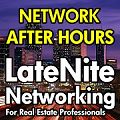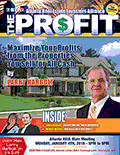Atlanta Real Estate Investors Alliance Blog
Learn 7 Ways to Find 7 Great Deals in 7 Days at Atlanta REIA North Meeting on January 27, 2016
Posted on January 18, 2016 by7 Great Deals in 7 Days
with Special Guest, Rock Shukoor
January 27th, 6:30PM
1960 Skylar Hill Dr, Suite D, Buford, GA

Atlanta REIA Members Please RSVP on Meetup.com
 Would you like to become a marketing machine and the “go to person” in your market?
Would you like to become a marketing machine and the “go to person” in your market?
Do you want to learn how to find deals others are looking for and cannot find?
Then join us at our Atlanta REIA North monthly meeting to learn how to find one deal a day. The meeting will be held on Wednesday, January 27th at 6:30PM located at 1960 Skylar Hill Dr, Suite D, Buford, GA.
Do you have all the leads you can need?
Marketing has been one of my strong suites and I am very proud of the results I have produced over the years from most of my campaigns. It is time to showcase my guerrilla marketing skills and show you how to find at least one deal a day. Yes, I said, ONE DEAL A DAY. I will show you 7 ways to find 7 deals in 7 days, find all the deals you need at will. I will be sharing everything you need to know on how to find deals quickly without using any money, very little if any. If you have a phone and have access to a computer, you are in business.
I will explain the whole process: the small but vital details, where to find deals, how to find the sellers and how to stay focused to find one deal a day.
At the meeting I will share with you:
- Where to find deals
- How to sell them in a flash
- What market to choose
- Where to get the list of prospects
- What kind of properties to focus on
- How to partner with me to use a list of over 6,000 cash buyers
- And much, much more
EARLY BIRD BONUS: I believe in rewarding action takers and entrepreneurs that are willing to do what it takes in order to change their lives or have the desire to get better at what they are already doing. Therefore, I will offer some bonuses. I am offering the following:

- A digital copy of my book, “Extraordinary Results by Ordinary Investors”
- A trip from 2
- One hour consulting, personal time to assist you to “Find your money direction now”, $250 value
You definitely do not want to miss this meeting and learn from Rock, a marketing genius. There will be a lot of learning and great networking. Make sure to bring your business cards and deals to discuss.
The Atlanta REIA North meeting is held on the 4th Wednesday of each month at 6:30PM at 1960 Skylar Hill Dr, Suite D, Buford, GA.. Atlanta REIA members can attend this meeting for FREE and guests and non-members can pay just $10 at the door OR pre-register online for only $5! Plan to get there early at 6PM to network before the meeting begins. There will be lots of learning and lots of networking. Bring your deals and your haves, wants and needs to the event.
We look forward to seeing you at the meeting!

Atlanta REIA Members Please RSVP on Meetup.com
 After the conclusion of the Atlanta REIA North Meeting (after 9:30PM), we will be reconvening at the Tannery Row Ale House located at 554 W Main St in historic downtown Buford, GA for the “Meeting after the Meeting”. We may arrive late if the Atlanta REIA North Meeting runs late. So please come eat, drink, network and have fun with us as hang out late into the night!
After the conclusion of the Atlanta REIA North Meeting (after 9:30PM), we will be reconvening at the Tannery Row Ale House located at 554 W Main St in historic downtown Buford, GA for the “Meeting after the Meeting”. We may arrive late if the Atlanta REIA North Meeting runs late. So please come eat, drink, network and have fun with us as hang out late into the night!
Setting Goals & Planning Your New Year with Joe Thompson on January 28, 2016
Posted on January 18, 2016 byAtlanta REIA Members Attend for FREE and Guests for Only $5 at the Door.
Guests can join Atlanta REIA for Only $100/year and Attend for FREE!

Atlanta REIA Members & Guests Please RSVP on Meetup.com
 This month on Thursday, January 28th at 11:30AM at the 5 Seasons Brewing located at 5600 Roswell Rd, Joe Thompson will be talking about getting your year started off the right way with setting goals and making a plan to execute. Join us on Thursday, January 28th at 11:30AM!
This month on Thursday, January 28th at 11:30AM at the 5 Seasons Brewing located at 5600 Roswell Rd, Joe Thompson will be talking about getting your year started off the right way with setting goals and making a plan to execute. Join us on Thursday, January 28th at 11:30AM!
The First Step Every Plan Needs to take a step. Did we really just say a plan needs to take a step? It does not even have legs! Well, the plan needs to take the step – the question that you should be asking is “in what direction?” It is not surprising to hear that most new business fail in the first year. Why is that? With any endeavor if you do not know where you are going, how can you get there? You must establish a destination and your plan needs to move in that direction.
If you stop and think about a destination and take the time to print out a map and chart a course, your chances of success are going to be far greater. You just need a good map and someone who knows the roads – like Atlanta REIA. Before we get to the map, let’s discuss destinations: If you are going to start a real estate business, what is your revenue goal for year one? What is your five year plan? What is your projected gross margin? What does it take to make a profit in your business?
If you are going to become a full time Real Estate Investor, which of the vast number of strategies, techniques and systems are you going to be using? How many deals do you plan to close each month? What are your exit strategies?
If you, like the rest of us here are going to profit from this current real estate market, what are you going to focus your attention on? Short sales, foreclosures, flips, rehab’s, rentals, lease purchase, notes, mobile homes, multi family, commercial, etc, etc? Do you have sufficient funds to do the type of deals you are going to target? If rental property is your goal, how many rentals do you plan to acquire and over what period of time?
Whatever you destination, a plan of attack and a step by step, turn by turn map of how to get there is what you need. You need to make sure your route is sound and that you take the best roads – that you use the best vehicle to minimize costs, save on taxes and protect yourself from the others out there.
 The Atlanta REIA Commercial & Multi-Family Real Estate Group is an educational, networking and call to action subgroup, led by Steve Brown and Bill Ham that is designed to help real estate investors take their investments to the next level by successfully investing in commercial real estate. You will meet the experts and the behind the scenes players in the game of commercial real estate investing. Come join us and learn to invest in commercial real estate for fun and extreme profits.
The Atlanta REIA Commercial & Multi-Family Real Estate Group is an educational, networking and call to action subgroup, led by Steve Brown and Bill Ham that is designed to help real estate investors take their investments to the next level by successfully investing in commercial real estate. You will meet the experts and the behind the scenes players in the game of commercial real estate investing. Come join us and learn to invest in commercial real estate for fun and extreme profits.
The group meets on the 4th Thursday of each month from 11:30 AM to 1:00 PM at the 5 Seasons Brewing located at 5600 Roswell Rd (map). Please note that the Commercial & Multi-Family Real Estate Group meets just prior to the Have’s and Wants Meeting which is from 1:30 PM until 3:30 PM. So please come enjoy both of these back to back meetings and get the most out of your day!

Atlanta REIA Members & Guests Please RSVP on Meetup.com
The Beginning Investors Group Meets January 18, 2016 with Rick Girgis
Posted on January 12, 2016 bywith Rick Girgis
REIA Members Attend for FREE and Guests for $15 Online or Pay $20 at the Door.
Guests can join Atlanta REIA for Only $100/year and Attend for FREE!

Atlanta REIA Members Please RSVP on Meetup.com
 To jump start your success in the New Year with the Atlanta REIA Beginning Investors Group (BIG), we are excited to have special guest speaker Rick Girgis, principal and founder of Equitable Consulting, Inc., at our meeting on Monday, January 18th at 6:30PM. The meeting will be held at the Hudson Grille located at 6317 Roswell Rd in Sandy Springs, GA. Rick will be talking about regulation compliance and how it relates to the Dodd Frank Act and much more.
To jump start your success in the New Year with the Atlanta REIA Beginning Investors Group (BIG), we are excited to have special guest speaker Rick Girgis, principal and founder of Equitable Consulting, Inc., at our meeting on Monday, January 18th at 6:30PM. The meeting will be held at the Hudson Grille located at 6317 Roswell Rd in Sandy Springs, GA. Rick will be talking about regulation compliance and how it relates to the Dodd Frank Act and much more.
Rules and regulations that investors must adhere to are always changing and it is important to stay informed about them. As a new investor, you may not even be aware of many of these laws and it can be quite overwhelming to try to understand it all. Rick is here to help! Equitable Consulting, Inc. is a Consulting Firm for investors and Mortgage Lenders, and a Residential Mortgage Brokerage and Commercial Lender serving the south east since 1999.
Rick will be discussing…
- Residential & investment underwriting criteria from institutional funding to private lending and how it pertains to stabilized properties, rehabs, and new construction.
- Pitfalls to watch out for in each of the above types of investments.
- Relevant ratios you should be aware of and use in making investment decisions.
- Investment strategy basics for deal #1, buy & hold, and fix & flip properties.
- And much, much more!
This meeting will give the beginning investor a solid foundation to begin building their real estate investing career and will refocus the seasoned investor to matters of most importance. You will not want to miss this great opportunity to illuminate your business with the insight of a seasoned consultant and jumpstart 2016 in the right direction. You will also gain a fundamental understanding of lending products, regulation compliance, and learn the associated opportunities available to Atlanta REIA members.
We are looking forward to seeing you on Monday, January 18th at 6:30PM at the Hudson Grille located at 6317 Roswell Rd in Sandy Springs, GA.

Atlanta REIA Members Please RSVP on Meetup.com
 After the conclusion of the Atlanta REIA BIG Meeting (after 9:00PM), we will be hanging out at the Hudson Grille for Late Nite Networking also known as the “Meeting After the Meeting”. Stick around, have some dessert, a drink, network and have fun with like-minded investors and real estate professionals as we hang out late into the night!
After the conclusion of the Atlanta REIA BIG Meeting (after 9:00PM), we will be hanging out at the Hudson Grille for Late Nite Networking also known as the “Meeting After the Meeting”. Stick around, have some dessert, a drink, network and have fun with like-minded investors and real estate professionals as we hang out late into the night!
*Please Note: Meeting agenda is subject to change.
If you become an Atlanta REIA member before midnight, January 17th, you may attend this BIG Meeting at no charge as well as other great Atlanta REIA Meetings, plus get great discounts on other Atlanta REIA Workshops.
 BIG is an educational and networking special interest group, hosted by Dustin Griffin for new investors who are just getting started in real estate investing as well as “new again” real estate investors who’ve taken a few years off and are looking to start investing again. The entire purpose of this group is to educate and inspire new investors working on their “first deal” and help new again investors get their “next deal”. Please join us on the 3rd Monday of each month at Hudson Grille located at 6317 Roswell Rd in Sandy Springs.
BIG is an educational and networking special interest group, hosted by Dustin Griffin for new investors who are just getting started in real estate investing as well as “new again” real estate investors who’ve taken a few years off and are looking to start investing again. The entire purpose of this group is to educate and inspire new investors working on their “first deal” and help new again investors get their “next deal”. Please join us on the 3rd Monday of each month at Hudson Grille located at 6317 Roswell Rd in Sandy Springs.
The Onsite Renovation Group Meets January 19, 2016
Posted on January 12, 2016 byHands-On Learning “ Site” at Your Real Renovation Projects
Tuesday, January 19th at NOON
3991 Shallowford Green Ct, Marietta, GA
Atlanta REIA Members Attend for FREE and Guests for $20 at the door.
Guests can join Atlanta REIA for Only $100/year and Attend for FREE!

Atlanta REIA Members & Guests, Please RSVP on Meetup.com
This month, on Tuesday, January 19th at NOON, the Onsite Renovation Group will be meeting at a rehab property located at 3991 Shallowford Green Ct in Marietta, GA. While at the property, Ryan Richter from Breakwater Restoration and Charlie Fowler from Legal Shield will be in attendance to answer your questions. We will also be looking at this rehab project and will discuss the process taken with this project. This will be a fun and informational meeting. Don’t miss out!
 The Atlanta REIA Onsite Renovation Group (ORG), hosted by Lynn Overall, is an educational and networking group that focuses on the acquisition, renovation and retail resale (fix and flip) of single family residential homes. The purpose of this group is to allow both new and experienced rehabbers and investors to meet, network and share knowledge and experience with “hands on” access to real property. The Onsite Renovation Group meets on the 3rd Tuesday each month at NOON at an active renovation site, build site or rental property which will vary from month to month. As always, there is no charge for Atlanta REIA members to attend. Guests pay just $20 at the door.
The Atlanta REIA Onsite Renovation Group (ORG), hosted by Lynn Overall, is an educational and networking group that focuses on the acquisition, renovation and retail resale (fix and flip) of single family residential homes. The purpose of this group is to allow both new and experienced rehabbers and investors to meet, network and share knowledge and experience with “hands on” access to real property. The Onsite Renovation Group meets on the 3rd Tuesday each month at NOON at an active renovation site, build site or rental property which will vary from month to month. As always, there is no charge for Atlanta REIA members to attend. Guests pay just $20 at the door.
For our meeting next month, we are looking for YOUR rehab deals. We want to take our group of investors and visit 3 of your rehab projects. If you have a project that is underway, please let Lynn know as soon as possible. We would love to learn together and discuss YOUR real life renovations!

Atlanta REIA Members & Guests, Please RSVP on Meetup.com
Let’s Make a Deal Meets on Monday, January 11, 2016
Posted on January 8, 2016 by
Atlanta REIA Members & Guests, Please RSVP on Meetup.com
 The “Let’s Make A Deal” group is a subgroup of the Atlanta REIA led by Lynn Overall and Don DeRosa that now meets on the 2nd Monday of each month at 6PM at the Hudson Grille located at 6317 Roswell Rd in Sandy Springs, GA. The focus of the group is to take new investors through the entire process of repurposing distressed home. Each home is purchased by the group and is completed as a Joint Venture. An experienced rehab investor then leads the group through the rehab process. Risk of loss is mitigated through the use of a consistent system for rehabbing homes, and through the use of experienced contractors. Our goal is to purchase a new property at each of our meetings.
The “Let’s Make A Deal” group is a subgroup of the Atlanta REIA led by Lynn Overall and Don DeRosa that now meets on the 2nd Monday of each month at 6PM at the Hudson Grille located at 6317 Roswell Rd in Sandy Springs, GA. The focus of the group is to take new investors through the entire process of repurposing distressed home. Each home is purchased by the group and is completed as a Joint Venture. An experienced rehab investor then leads the group through the rehab process. Risk of loss is mitigated through the use of a consistent system for rehabbing homes, and through the use of experienced contractors. Our goal is to purchase a new property at each of our meetings.
During the meeting, we will identify a property, hard or private money lender, and a contractor. We will finance the deal using a participating money lender, all of whom attend the meetings. Do not leave your checkbooks at home because we buy properties at each meeting.
The sponsors of the “Let’s Make A Deal” group have successfully repurposed homes in California, Texas, Georgia, and Florida. If you are a new investor looking to be a participant in a home rehab project, then this is definitely the group for you. Please keep in mind that everyone who attends “Let’s Make A Deal” is required to participate. The minimum size of the investment will be determined by the purchase price of the home presented at the meeting.
Come on out and check out the meeting. We would love to have you join our team! We are looking forward to learning and earning with you!

Atlanta REIA Members & Guests, Please RSVP on Meetup.com
All Inclusive Marketing Group Meets on Wednesday, January 13, 2016
Posted on January 8, 2016 byBecome a Marketing Machine and the “Go To” Person in Your Market for Doing Deals
with Rateb “Rock” Shukoor
Jan 13th, 7:00PM, Hudson Grille, Sandy Springs, GA

Atlanta REIA Members Please RSVP on Meetup.com
 Our next All Inclusive Marketing (AIM) Group Meeting is Wednesday, January 13th at 7:00PM at the Hudson Grille located at 6317 Roswell Rd in Sandy Springs.
Our next All Inclusive Marketing (AIM) Group Meeting is Wednesday, January 13th at 7:00PM at the Hudson Grille located at 6317 Roswell Rd in Sandy Springs.
Do you have all the leads you could ever need?
Do you want to lean how to find deals that others are looking for and cannot find?
Marketing has been one of my strong suites and I am very proud of the results I have produced over the years from most of my campaigns. It is time to showcase my guerrilla marketing skills and show you how to find at least one deal a day.
Yes, I said ONE deal a day. I will show you 7 ways to find 7 deals in 7 days, and find all the deals you need as well.
I will be sharing with you everything you need to know about how to find deals quickly and with using very little money, if any at all. If you have a phone and have access to a computer, you are in business.
I will explain the whole process: the small but vital details, where to find deals, how to find the sellers and how to stay focused in order to find one deal a day.
Here are the items I will share with you:
- Where to find deals
- How to sell them in a flash
- What market to choose
- Where to get the list of prospects
- What kind of properties to focus on
- Where to get the money from for these deals (Only if you need them)
- How to partner with me to use a list of over 6,000 cash buyers
- And much, much more
This is a must attend event! We will meet at our usual location at the Hudson Grille at 7:00PM and be there until 9:00PM and then hang out and have our Late Nite Networking. I look forward to seeing you at the meeting!

Atlanta REIA Members Please RSVP on Meetup.com
*Please Note: AIM Meeting agenda is subject to change.
 After the conclusion of our All Inclusive Marketing Meeting, we will be hanging out at the Hudson Grille for “Late Nite Networking” to socialize and build stronger bonds. So come and join us for the AIM Meeting and be prepared to stay late and network and have fun with like minded real estate investors, marketers and other professionals late into the evening!
After the conclusion of our All Inclusive Marketing Meeting, we will be hanging out at the Hudson Grille for “Late Nite Networking” to socialize and build stronger bonds. So come and join us for the AIM Meeting and be prepared to stay late and network and have fun with like minded real estate investors, marketers and other professionals late into the evening!
 The Atlanta REIA All Inclusive Marketing (AIM) Group is a networking and educational meeting led by Rock Shukoor for like-minded real estate investors and small business owners who LOVE MARKETING and are interested in improving their business and taking it to the next level through creative marketing techniques.
The Atlanta REIA All Inclusive Marketing (AIM) Group is a networking and educational meeting led by Rock Shukoor for like-minded real estate investors and small business owners who LOVE MARKETING and are interested in improving their business and taking it to the next level through creative marketing techniques.
The All Inclusive Marketing group is for folks who want to want to get together, learn and discuss marketing challenges, strategies and opportunities. Although many of the examples we cover at this meeting are geared towards real estate investors, the techniques and strategies learned at our meetings can be applied to any business.
We meet on the 2nd Wednesday of each month at 7:00 PM at the Hudson Grille located at 6317 Roswell Rd in Sandy Springs. We have our private meeting room and after the meeting we hang out for Late Nite Networking. AIM is FREE for Atlanta REIA Members. Guests and Non-Members can pay $20.00 at the door or RSVP Online for $15.00.
Expert Negotiating Tactics Workshop with Don DeRosa on February 6, 2016
Posted on January 5, 2016 byAt Keller Williams Metro Atlanta
315 W. Ponce De Leon Ave, Suite 100, Decatur, GA
PLEASE NOTE: This event has been rescheduled from Jan 23rd to Feb 6th due to inclement weather conditions.
 There is nothing worse than losing a deal because you didn’t know the right things to say when negotiating with the seller. Does the fear of this happening prevent you from achieving your goals? Negotiating may seem scary to many people because they are afraid of offending the seller and don’t want to go in with a “low-ball” offer. Don DeRosa is here to help!
There is nothing worse than losing a deal because you didn’t know the right things to say when negotiating with the seller. Does the fear of this happening prevent you from achieving your goals? Negotiating may seem scary to many people because they are afraid of offending the seller and don’t want to go in with a “low-ball” offer. Don DeRosa is here to help!
Don is a leading expert on negotiations and he wants to share with you what he knows to help you overcome your fears and achieve your goals. On Saturday, February 6th, Don will be teaching a full day workshop that will help you do just that. The workshop will begin at 9AM at Keller Williams Metro Atlanta located at 315 W. Ponce De Leon Ave, Suite 100 in Decatur, GA.
Negotiating does not have to be something that makes you shudder. After this workshop, you will feel confident and have the knowledge and tools at your disposal to be able to walk into any negotiation feeling fully prepared to create a win-win deal.
At this workshop, you will learn about…
- 3 variables to every negotiation
- How to recognize non-verbal clues and use them to your advantage
- How to plan and gather information for successful negotiations
- How to use state of the art tools to do all your negotiating for you
- How to overcome all seller objections when buying a house
- How to create win-win deals so that everyone leaves happy
- And much, much more!
Don’t miss this great opportunity to learn about successful negotiating from an expert real estate investor who lives right here in your backyard!
The Profit Newsletter January 2016 Edition
Posted on January 4, 2016 by The January 2016 Edition of The Profit Newsletter is now available for download. There are 48 pages of valuable information this month for your real estate investing pleasure and success. Download it and check it out! The Profit is Atlanta REIA’s digital, interactive newsletter for serious real estate investors delivered as an Adobe PDF file to read on your PC, Mac, Smart Phone, iPad or other mobile ready devices. Many of the articles and ads in The Profit contain many hyperlinks you can click to get more information online! The high res version of The Profit is “print ready” for those who want to print the newsletter on their home or business printer. Be sure to Subscribe to The Profit by Email or Subscribe to The Profit by Text so you don’t miss a single issue.
The January 2016 Edition of The Profit Newsletter is now available for download. There are 48 pages of valuable information this month for your real estate investing pleasure and success. Download it and check it out! The Profit is Atlanta REIA’s digital, interactive newsletter for serious real estate investors delivered as an Adobe PDF file to read on your PC, Mac, Smart Phone, iPad or other mobile ready devices. Many of the articles and ads in The Profit contain many hyperlinks you can click to get more information online! The high res version of The Profit is “print ready” for those who want to print the newsletter on their home or business printer. Be sure to Subscribe to The Profit by Email or Subscribe to The Profit by Text so you don’t miss a single issue.
Have You Ever Wondered How You Can Maximize Your Profits from the Properties You Sell for All Cash?
Posted on January 4, 2016 byHappy Prosperous New Year 2016 to You All!
I continually talk to my students about maximizing their profits on every deal they do so this month I am going to explain to you how you can do just that, get more money from the deals you do. This is a simple strategy every investor can easily accomplish once they have an understanding how to make it happen.
I’m Not Talking About Doing Any Extra Work to the Properties You Sell
I’m Talking About a Way to Get More Price for the Houses You Are Selling.
High consumer debt with high interest rates can greatly affect how big of a loan buyers can qualify for to buy a home for their family. A buyer who is trying to buy your properties can be greatly handicapped simply because they have high consumer debts they are paying every month which greatly limits how much of a loan they can qualify for.
What if you could help your buyer eliminate a portion of their consumer debt to change their debt-to-income ratio considerably? You could instruct your buyers to pay off one of their high interest consumer debts such as, (a credit card) that has a current balance of $3,000 as an example that has a monthly payment of $60.00. How would that help them qualify for a bigger loan you ask? First comes the question, how can they pay off that debt all at once with their limited income? What if you bought something from your Buyers? If you were to buy something from your buyers (an old car, a boat, a barbeque grill) for $3,000, it would give them money to pay off that one high interest $3,000.00 debt. Now let me show you how you can get more price for your property and maximize your profits by buying something from your potential buyer. Read More→
Find Deals with Zero Money
Posted on January 4, 2016 byThe number one question that new investors and/or wholesalers ask is, “How do you find your real estate deals?” Many times I think they are searching for some sort of magic secret that leads to an unlimited supply of investment deals, but we all know there is no such thing. However, they are surprised to know that there are many ways to find deals that take little to no money but does take time and discipline.
If you have ever been in a sales position the first thing trainers ask you to do is write down everyone you know that can help you. The great thing is that you already have multiple lists in the palm of your hand, literally. Everyone in your phone contact list can be a potential seller or know someone that is selling their home. In addition, you may have social media outlets such as Facebook, twitter, google+, LinkedIn, etc. that each has more and more people that can assist you in finding deals. By only reaching out to these lists you may come across a few real estate investment opportunities that you like. All these leads at your disposal and it did not cost you a dollar. You might think that there will not be a distressed seller in your network, and while that may be true they might know someone who is. Simply telling everyone you know you are looking for investment real estate will lead to finding a deal. Read More→
Do You Have Big But Disease?
Posted on January 4, 2016 byThe thing that kills most real estate investors – heck, the thing that prevents 95% of folks from reaching anywhere close to their full potential as human beings – is the dreaded Big But Disease!
It goes something like this: I want to start my own business, but… I want to do more for my church, but… I want to own 20 free-and-clear rental properties, but… I want to get in shape, but… I want to improve my marriage, but… I want to spend more quality time with my kids, but…
That stinky Big But Disease will squash your dreams, murder your goals, and destroy the person you were born to be!
Starting today, what if you replaced saying “but…” with saying “I’ll do whatever it takes to get this thing done!”
So instead of saying, “I want to run a marathon, but…” you’d say, “I want to run a marathon, and I’ll do whatever it takes to get this thing done!” With this attitude how much more would you accomplish in your lifetime? Read More→
3 Rules For Success
Posted on January 4, 2016 byAs this year comes to an end, I am reflecting on what went right and what areas in my life do I need to focus on, to make some improvements to reach my highest level of success?
Part of having a very successful business, involves 3 basic principles; purpose, attitude and action. Let’s look at these 3 basic principles. The good news is the chances of us getting it right is because the change is within us and we don’t need to depend on anyone else for this success. Did you hear me! The bad news is the change is within us, which means we have to take responsibility and action to get it right.
Number 1 – What is your Purpose?
When we have an outrageous WHY, the opportunity for success goes up dramatically.
SO ask yourselves…. why do you think real estate is the right vehicle for you? What problems can this vehicle help to solve in your life? How is this new wealth vehicle different from the current work you are doing? This is not a get rich quick scheme. Read More→


